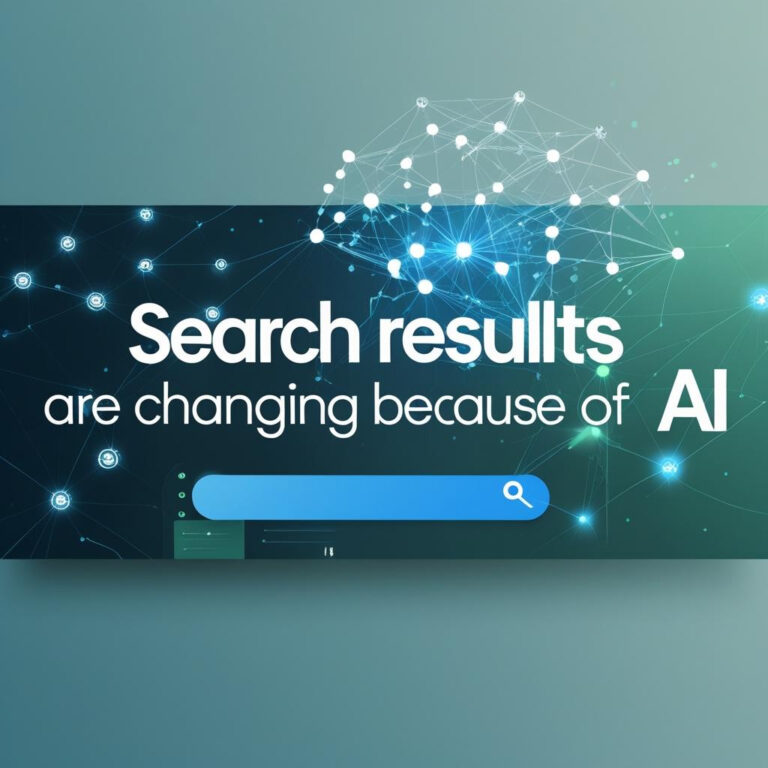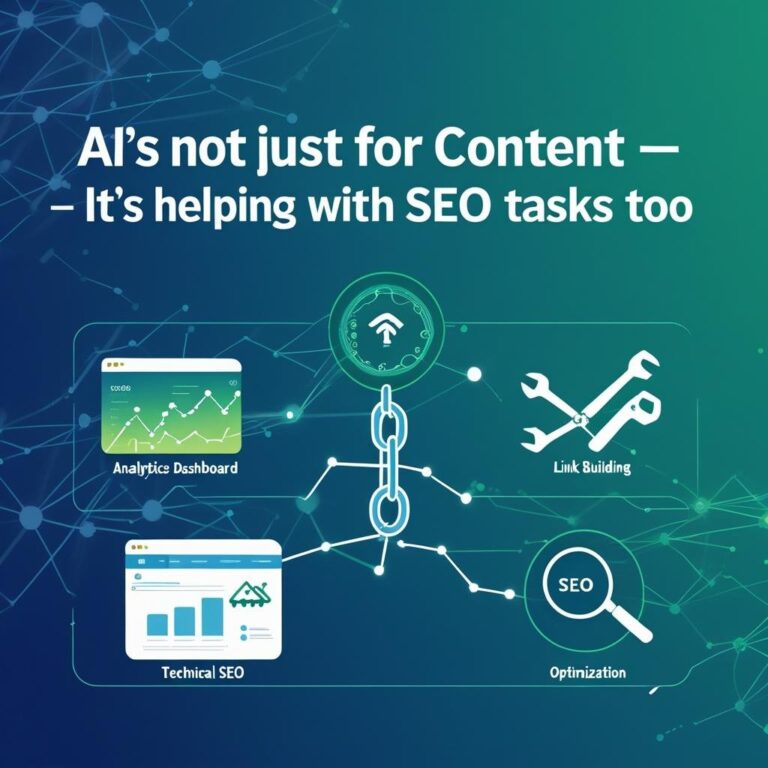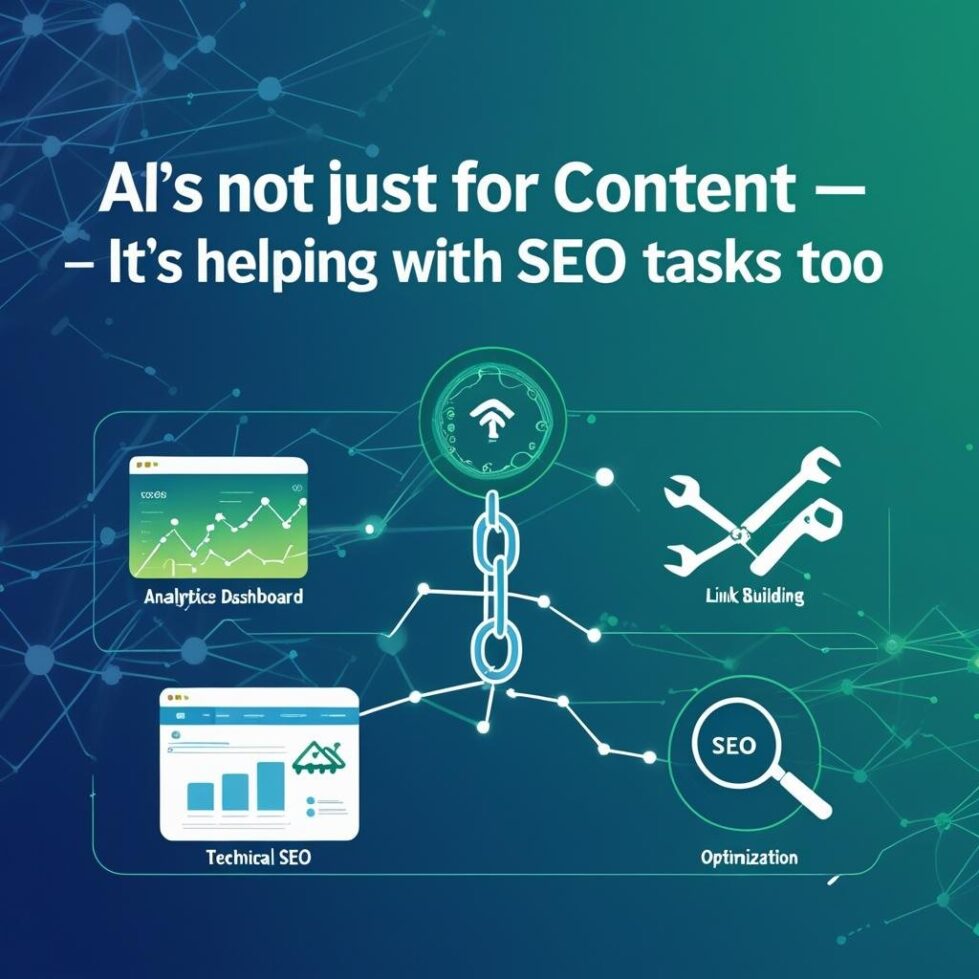If you’re in the world of websites, marketing, or running your own business, chances are you’ve heard the buzz about AI. It’s everywhere. Chatbots, content writing tools, image generators, smart emails — and yes, search engine optimisation (SEO) hasn’t been left out either. But the question is, has AI actually changed SEO? Or is it just a new way to do the same old stuff?
Let’s have a look.
AI’s Not Replacing SEO — But It’s Definitely Stirring the Pot
First things first — SEO isn’t dead. Not even close. It’s just wearing a slightly different outfit now.
What AI has done is make some parts of SEO easier, some harder, and a few things… a bit blurrier. From content writing to keyword research, AI has made a lot of the tasks quicker. But quicker doesn’t always mean better.
Google’s still the referee. It’s still rewarding quality content, helpful answers, proper site structure, and genuine human engagement. AI can help get you there, but it won’t magically keep you there if you don’t know what you’re doing.
Let’s Break Down the Big Ways AI’s Been Shaking Things Up
Content Creation’s Had a Makeover
Tools like ChatGPT, Jasper, and Gemini are making it easier for people to pump out blog posts, landing pages, and FAQs in bulk. For small businesses, that’s tempting. Who wouldn’t want to write five blogs in the time it used to take to do one?
But here’s the catch, Google’s getting better at sniffing out fluff. If your content doesn’t actually help someone, answer a real question, or show some original thought, it won’t rank well. Worse, it might even hurt your site long-term.
So yes, AI can help speed up writing. But someone still needs to guide it, ideally someone who knows the audience, your business, and what your clients actually care about.
In short: AI can write words. You still need to provide the substance.

Keyword Research Has Got Smarter (But Not Foolproof)
Keyword research used to be a slog. You’d spend hours trying to figure out what people were searching, how much competition there was, and what you could realistically rank for. AI tools now help suggest keyword clusters, search intent, even content outlines based on top-performing articles. Great, right? Sort of.
The tools still need context. Just because a keyword gets a lot of searches doesn’t mean it’s relevant to your business. We’ve seen plenty of sites chase traffic they’ll never convert, and end up with useless visitors and a bounce rate that’s off the charts.
Our take? AI makes research faster, but good SEO still needs a local brain behind it. Someone who knows what a real Auckland plumber, physio, or tradie client is actually typing into Google.

Search Results Are Changing Because of AI
Google’s been rolling out more AI features in search itself. Think featured snippets, AI-generated overviews, “people also ask” boxes, and all sorts of things that pull answers directly into the results page.
What does that mean?
Well, sometimes users don’t even click through to your site — they get what they need straight from the Google results. That’s great if you’re the one featured. Not so great if you’re buried under the AI summary and no one scrolls that far.
It’s also forcing businesses to rethink how they write content. You need to answer questions clearly, structure your content well, and earn that top result.
AI in the search engine means SEO isn’t just about being on Page 1. It’s about being in the answer box. That’s a new game.

AI’s Not Just for Content – It’s Helping with SEO Tasks Too
We’re using AI for loads of behind-the-scenes stuff now — writing meta descriptions, summarising competitor content, creating schema markup, even helping with internal link suggestions. It’s like having a junior SEO assistant who never sleeps.
But again, it’s not magic.
AI still doesn’t know your audience like you do. It can’t read between the lines of your client’s tone. It won’t know your seasonal sales patterns or what Kiwi slang is acceptable on a landing page (trust us, it’s not always pretty).
It’s a helper, not a replacement.

So What’s the Bottom Line?
AI hasn’t replaced SEO — but it’s definitely changed the way we do it.
It’s faster now. You can scale content, automate tasks, and stay on top of more data than ever before. But at the same time, the expectation from Google and your audience has gone up.
Everyone’s got tools now. So to stand out, you need more than a robot spitting out paragraphs. You need content that speaks to people, helps them, and encourages them to do something — book a chat, sign up, or just trust you enough to come back later.
A Few Practical Tips for Using AI in SEO
If you’re keen to use AI in your SEO (and we reckon most should), here’s how to do it without falling into the trap of bland, useless content:
Use AI to brainstorm, not to publish blindly
Always edit with a human eye — tone, facts, flow
Avoid sounding like a robot — real stories and local flavour still matter
Don’t chase traffic you don’t need — stick with intent
Mix AI with your own smarts — AI is the tool, not the driver
Keen to sort this stuff out? You’ve got two simple options: grab one of our free guides and start making improvements yourself, or book a quick chat with John and we’ll take a proper look at what’s going on with your website and marketing. No pressure, just honest advice and practical next steps.






